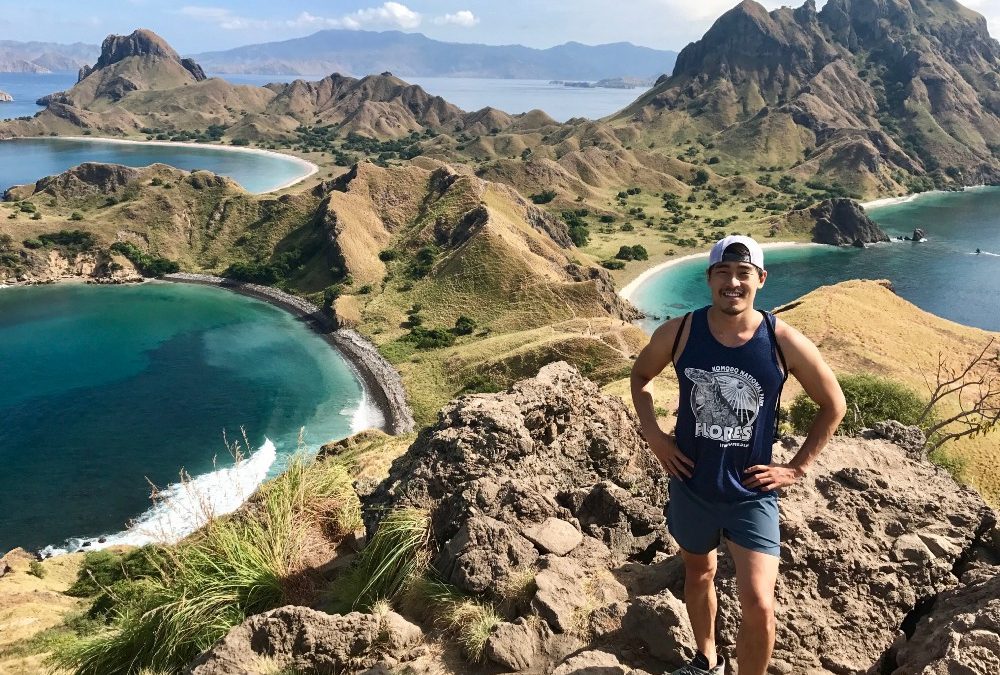
Flores, Indonesia
A Quick Preface
I’d like to share with you the story of how I went from a poor Asian kid to aspiring doctor, to aspiring actor (synonym for unemployed), to a world traveller and successful entrepreneur & CEO of a million dollar company in less than four years. Truth be told, I don’t like to talk about myself. I grew up with Asian parents that told me to be modest, to be humble, and to never tell people too much. (Meanwhile, they bragged to all their friends every time I got an A — which was less common than they liked.) However, it is important for me to share my experiences that led to success in order for you to see that I am no different from you.
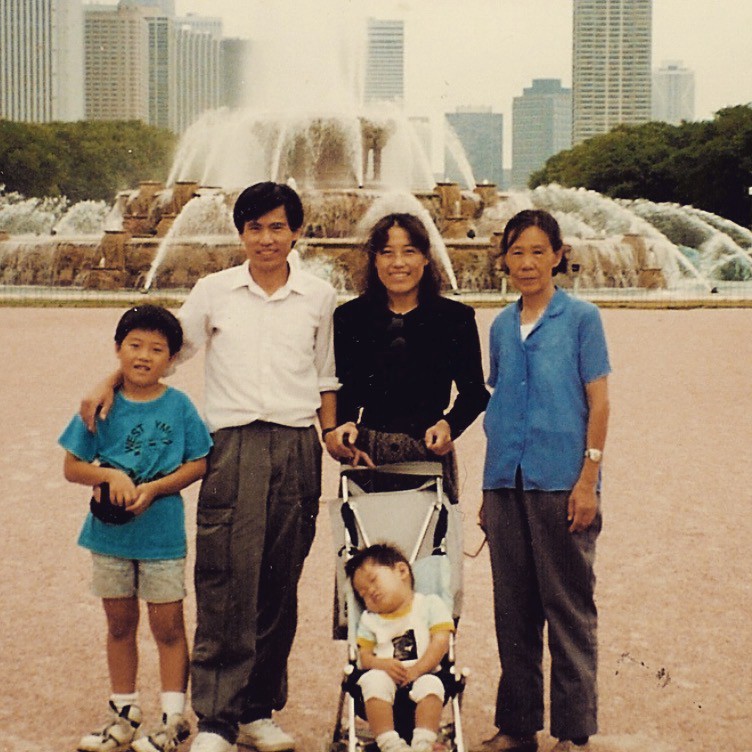
I’m the sleeping baby
I hope that by my sharing these details of what worked for me, you can learn how to break the status quo, bust through the bamboo ceiling, and be successful in anything you do — even if you end up becoming a doctor. Over four years ago, I set out on a path to make a difference, become a role model, and show people, no matter the background, that you can have a non-traditional career path or don’t want to be a doctor, you can still be extraordinarily successful and happy. Finally, I feel that I’ve gotten to a point where I have a little more experience, some accomplishments, a bit of wisdom, and some tips to now share back to someone once in my position.
For Asian-Americans in particular — we don’t need any more Asian doctors. Don’t get me wrong doctor friends, I love you guys. But, I also don’t think my Asian doctor friends would disagree with me when I say we also need more young people who will break the status quo and become CEOs, world leaders, politicians, writers, actors, athletes, inventors, innovators, and more. We need more Eddie Huangs, more Jeremy Lins, more Steve Chens and Alexander Wangs.
I created my blog site WhyYouNoDoctor.com simply because I wanted to share what I’ve learned with you — all the young, smart, and passionate people who don’t quite know what they want to do yet. And that’s okay. Don’t just go into a traditional career like being a doctor or a lawyer or a scientist unless you truly and honestly love it. You should explore other paths as well — the world is a place full of opportunities. As long as you have drive and motivation (and I’m assuming if you can get into medical school, you have it), then you will be successful.
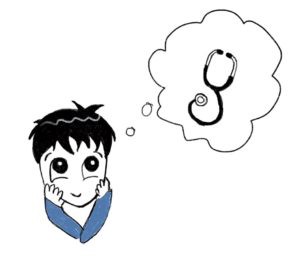
Personally, I truly believe that my early success in my career was not left up to luck. It took a lot of hard work, optimism, and even mistakes for me to carve out a career path that I love and still is continually adapting.
In our society, so many college graduates are worried about finding a job — any job that will give them security and comfort. There’s a lot of concern about entering the real world and having real responsibilities. My view on this is that the real world is infinitely more fun than the artificial bubble within a university institution. In a university, no matter how hard you work, you’re still constrained within the limitations of your academic setting. In fact, as one of my favorite writers, Seth Godin, says in his book Stop Stealing Dreams:
“If all we do with these tools is teach compliance and consumption, that’s all we’re going to get. School can and must do more than train the factory workers of tomorrow.”
We’re taught to obey, to not speak up, to be uniform through standardized testing, to not talk back. If you do these things, you will be successful and have excellent grades. Then if you’re lucky, you will get a good entry level job which leads you to climbing the traditional corporate ladder. You become a modern day factory worker where you sit in front of a computer all day instead of operating machinery in a factory.
However, once you graduate, there is no one path to success. Even better, you’re actually able to create something tangible, something influential, something world-changing, and most importantly, something you’re very passionate about. Of course, this is easier said than done because at the end of the day there are risks involved — but I want to ask you to ask yourself: what truly are the risks at hand?
In fact, the risks are a good thing. I believe that we push ourselves to work our hardest and best when our back is against the wall. When that need for success is as great as your urge to sleep, to eat, to party, to socialize, then you’ll find yourself finally making progress in achieving it.
It’s never too late, however, I hope I’m catching you at the right time. What I mean is that you’ll have a much easier time building lifelong successful career(s) if you start early when you don’t have obligations in your life such as a family to support or relationships you have to balance. The best time to experiment is when you’re fresh out of college and have the freedom to literally get up and leave whenever you want. The freedom to just do you.
As a freshman in college, I selected engineering as my major, but within one semester I had decided to shift to pre-med. I told everyone I was going to become a doctor, without having any idea why besides the fact that it seemed like society had told me that was my destiny. I should mention that it was also because engineering classes were hard, I wouldn’t have to take Calculus II, and there were virtually no girls in my engineering classes. In those classes, I’d be the dumb kid trying to figure what the Auto-CAD software was. Meanwhile, over there in the biology classes I could be the “smart Asian” study partner.
One last thing before we get started: If you ever have questions, comments, or just want to chat, drop me a message below or feel free to email me. I’m here to support you in achieving your goals in whatever ways I can.
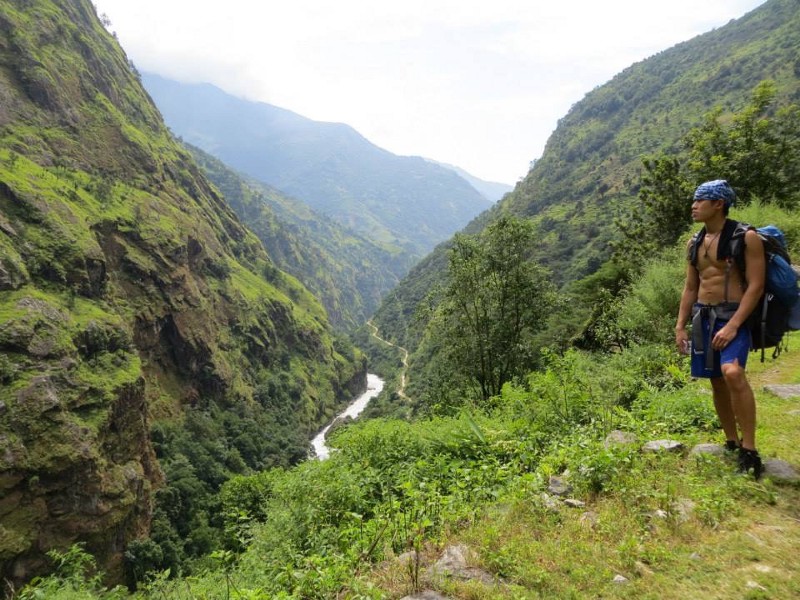
Annapurna Circuit, Nepal
1. A Day in the Life
A river of sweat streamed down my face as the midday sun beat down on my body. And when I say river, I mean literally — it was like I was standing under a shower that was halfway turned on with water from the showerhead lazily dripping on my hair. My back was killing me so I readjusted my thirty-pound backpacker pack. I was wearing it in front of my body now. In retrospect, I probably would have invested in a better quality backpack with more back support had I known that I’d be trekking the Annapurna Circuit in the Himalayas for two weeks, eight hours a day. In my backpack, I carried my life possessions. Some of the highlights included a Macbook Air, a white tank top with Bruce Lee on it that I bought in Thailand, a shirt that says “Good Morning Vietnam,” a knockoff Northface rain jacket, another knockoff Northface longsleeve shirt, a pair of Adidas soccer sweatpants, and a pair of waterproof pants. I think I had about a pound of almonds in that bag too and some dark chocolate that was completely melted over my belongings.
If you’re not familiar with the Annapurna Circuit, it’s widely considered the most beautiful hike in the world. The most common starting point is in Pokhara, Nepal, and from there you start in the jungle at around 1,500 meters elevation and ascend up to almost 6,000 meters. Obviously when you begin the hike, it’s humid, hot, and dusty, but as you ascend in elevation, you end up below zero trekking through the snow. Moreover, you’re carrying a heavy backpack as you hike from sunrise to sunset.
Okay, I admit, they say you should start the hike at sunrise because it’s cooler, and you can arrive before sunset when you might get lost, but trust me, it’s really damn hard to get up at 7AM when the day before you just trekked for a solid eight hours.
The key to this hike is to pack light, and pack in layers. What I mean is that you should carefully craft your clothing options so that you can essentially add on one more layer per couple hundred meters of elevation. Therefore as it gets colder, your bag gets lighter because you’re wearing the weight. Of course all said and done, the trek is physically strenuous, unless you hire a local porter to carry your belongings for you — but I think that destroys the feeling of accomplishment you get from busting your ass and getting sweaty and dirty. Like most things in life, often times the struggle is the most fun part of any accomplishment, and there’s nothing like hiking a full day, getting to a village rest stop for the night, and ordering every single dish on the menu plus an ice cold beer for a total of $10 USD. The way I saw it, it was guilt-free carb loading — I earned it.
Suddenly, I heard a familiar “ding” and felt my pocket vibrate. I stopped moving and pulled out my iPhone. On the top left, I saw one bar of Edge (E) data service, and a new mail notification. Prior to embarking on the trek, I bought a local SIM card with the hope that I would be able to check my email and maybe send out a couple iMessage photos to my friends. I was assured by the Nepalese man in his self-owned hole-in-the-wall-store that I definitely would have full broadband internet while I was hiking in the Himalayas.
Well, for the past seven days on the trek, my phone had constantly displayed “No Service,” so clearly he was misinformed. Normally for most people this wouldn’t be a problem, but for me… I was running a internet business and for all my clients knew, I was just waking up and on my way to the office (my office is actually my bedroom) in Los Angeles, California. I didn’t anticipate that I’d be out of cell phone service for a week, especially because I’m generally expected to respond to emails within 24–48 hours. I wasn’t panicking per se about not being to check e-mails and respond because I was working for myself, but I generally do pride myself on being there when my clients need me. Therefore, you can imagine how ecstatic I was to find that I had one bar of internet service. Quickly, I took off my backpack, sat down on a rock, and whipped out my MacBook Air which was securely wrapped around with a bandana and placed into a gallon-sized zip-lock bag with a bunch of those moisture-absorbing packets that you find in beef jerky packages. I turned on my personal hotspot so my computer could connect to the WiFi. At a rate of about 1 per 15 seconds, all of my e-mails began to roll in. Business e-mails requesting quotes for my services began to populate my screen as well as existing clients with questions for me. One email in particular stood out, though. The subject line said “Re: Contract Agreement Signed.”
I had just closed a lead that I followed up a week prior when I was in Thailand. A smile began to creep across my face as I took a sip of water and looked around at the vastness of the Himalaya mountain range around me. I just made $15,000.
Nepal was the last leg of a work and backpacking trip that lasted over four months and brought me across seven countries, starting in Los Angeles. I began by spending a month in Hong Kong working on a $100 million dollar movie as an acting coach and translator for the Michael Mann film Blackhat.
Then I went off and got to see first-hand the 4th most populous country in the world, Indonesia, and the immense history there including the world’s biggest Buddhist temple in Borobudur, and the chill environment of Ubud in Bali, Indonesia.
Afterwards, I flew to Singapore, then backpacked up throughout Malaysia and spent a week in the Perhentian Islands where I scuba dove for a week in the clear blue waters. After that was motorbiking down parts of the coast of Vietnam from Hanoi to Saigon and learning about the Vietnam War before spending a month in Phuket, Thailand, to learn Muay Thai, a form of the largely popular Thai kickboxing.
2. “Why You No Doctor Yet?” (Well Dad, It’s Hard to Be a Doctor When You Failed the MCAT)
Less than one year before my backpacking trip, it was the summer after college graduation, I was sitting in the living room of my friend’s apartment playing Diablo III, and pondering what my next step in life would be.
My father has his Ph.D. in Molecular Biology, my mom is a nurse, my brother is a California bar-certified lawyer, and from the day I was birthed, naturally I was supposed to become a doctor. Coming from an Asian-American family, this was the norm. I just accepted the fact that I was going to become a doctor and didn’t even really try to resist it.
In my senior year of high school, I applied to all my top university choices and got waitlisted to them all with my measly GPA. I spent most of my time playing Counter-Strike and Final Fantasy XI. When I wasn’t playing computer games, I was assembling computer parts and overclocking my desktop to be able to play more computer games. With a bit of luck, I ended up getting accepted into the University of Wisconsin — Madison.
I didn’t want to get caught in that situation of being rejected by all my post-college plans again, so in college I studied my ass off for four years and graduated with a 3.9GPA, Phi Beta Kappa at the top of my class. I worked at a lab, volunteered at HospiceCare, took the MCAT, and had a wealth of extracurriculars I could toss on the resume for medical school. I even volunteered on a medical mission trip in Costa Rica to try to make myself passionate about a career in medicine.
The closer I got to submitting my medical school application, the more I began to have a few thoughts:
Did I really want to spend my 20s, possibly the best years of my life, buried in textbooks, memorizing a lot of stuff that I probably wouldn’t ever apply in my life?
Was I really passionate about being a doctor and helping people, or was I more passionate about the idea of it?
If I was so passionate about helping people, then weren’t there better ways to help people than what I would probably end up doing, helping one rich person at a time who could afford American health insurance? Wouldn’t being an engineer and building better infrastructure in developing nations or providing clean drinking water or health awareness be more impactful?
How was I ever going to compete with some of the other kids in my class, like my Chinese-American friend Brian, who simply learned faster than I did? (He got a 42 on his MCAT and now is an MD PhD at Columbia.) At best, there would still be so many people in medical school that were just going to memorize faster than I could. I’d have to overcompensate and spend even more time just to keep up…
Did I want to more or less plan my life for the next decade by enrolling into medical school? What else would I do if I didn’t become a doctor? (I actually started studying for the LSAT after I took the MCAT, lol.)
Then I got very lucky.
The decision made itself when I got a 24 on the MCAT. That put me in the bottom 43 percentile and pretty much hopeless to attend any halfway decent medical school. In my head, I was planning on applying to schools like Harvard Medical College which requires a 36–37 MCAT score which is in the top 97 percentile.
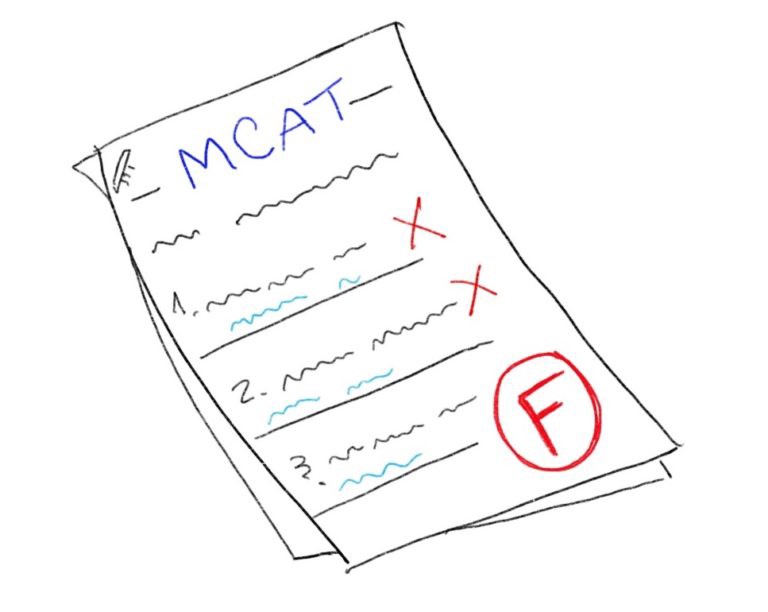
24/45 on the MCAT = 43% Percentile
Ultimately, I was relieved because I would have to retake the MCAT in order to go to medical school and I could use my low score as an excuse to just go and teach abroad or apply to some programs like the Fulbright and Princeton in Asia.
Then the decision got even more interesting. I got rejected from all of the gap-year programs that I applied for. I only got one offer: teaching English in a rural Chinese city, making a couple thousand bucks a month.
In short, I worked my ass off in everything I did, but the end result was that I was graduating with no job, no real offers, no direction. How on earth did I end up in the exact same situation as I had four years ago when applying to colleges as a high school senior?
The back to back to back rejections made me realize that I really had nothing left to lose. This was the most important realization of my life — that I could just experiment and find my passions through trial and error. Worst case scenario, I would move back in with my parents, have free rent and food and try again.
I’d had this vision of moving to Los Angeles and becoming an actor for some time during college and figured that now was as good as a time as any.
I was inspired by people like Sung Kang who was just coming off a great performance in Fast Five. I even Facebook messaged him about being an Asian American and moving to Los Angeles to give acting a try for a few years before possibly going back to medical school.
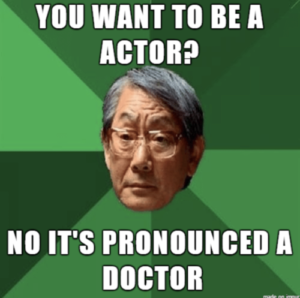
He actually responded to me and more or less angrily told me to either commit to it for the long haul or don’t come to Los Angeles at all.
I decided that even though I wasn’t depressed at all, I certainly felt complacent just sitting in my friend’s apartment, playing Diablo III and making tacos.
I knew the clock had begun to tick, and it was time to take some risks. That same day, I booked a one-way plane ticket to California and also applied for food stamps. Little did I know that the failures that resulted in my abandonment of a career in medical school would create a new divergent opportunity for success in a field that I was passionate about but too afraid to pursue.
I packed my bags and flew to Los Angeles to pursue a career in acting.
I broke the news to my dad. He actually supported my decision — under one condition. Instead of becoming an actor, I would move to Los Angeles and enroll in a master’s program to become some sort of Astrophysicist Engineer. Meanwhile, he said it would be OK if I tried some acting things as long as my focus was on being an engineer and eventually going back to medical school.
Things I Learned
- Do not go straight into medical school after college without experimenting first.
If you have any question whether or not medical school is the right choice for you, then absolutely do not commit to a life decision and go straight away. To be honest, you likely have zero real-world experience outside of college. Take some time to explore and grow and find your bliss. Find what makes you excited, happy, passionate. What’s the rush? Not attending medical school was the best decision of my life — I am positive about that. Worst-case scenario is that you still go to medical school! You can have your cake and eat it too.
- Have “Fuck it” moments and just do what you want without thinking too much. Be spontaneous.
In the words of Tony Robbins, “If you do what you’ve always done, you’ll get what you’ve always gotten.” I had a moment one day after playing Diablo III and cooking tacos straight for two weeks where in my head I said, “Fuck it.”
I still have a blog entry from that very day I left five years ago. Here’s an excerpt.
June 17th, 2012
The second I woke up this morning, I felt butterflies in my stomach. I asked myself if I knew what I had gotten into. Today was the day I began a new chapter in my life — one of huge risk, and huge reward.
My emotions were mixed, I was nervous, but realized that it was OK to be nervous. I was sad because I knew that I wouldn’t be seeing some of my best friends for a while as we all moved on to the next chapter of our lives. Moreover, I would miss memories of my hometown, Madison, WI. Most of all, I would miss being in the same city as my single-parent mother for the past 22 years. But, as she says herself, it was time to send her second ‘piglet’ (a reference to the children’s story of the three little piggies and the big bad wolf) off to struggle and build his own career.
It was a sad day, but one of excitement as well. I was moving to California to pursue a career in acting that I had finally settled on after trying as many things as I could at UW-Madison. From engineer to biologist, pre-med to Chinese to law, I think that is what it took for me to do what I knew I should all along: a career in the arts. Maybe it’s that inexplicable rush of passion and anxiety I feel when I imagine what it will be like to be a part of the Asian-American art movement, and all that I can do for my community.
- The time to take risks is now. You have nothing to lose.
Some people in the world have real problems. Yours end as soon as you find yourself unemployed and broke, having to move back into your parents’ house or crash on a friend’s couch. There are no excuses. Had I not had this mentality, I would have never made a leap of faith into the unknown. Your immigrant parents literally gave up everything for you to have a life of choice and opportunity in America. Most immigrant parents didn’t have the opportunity to pursue their passions and dreams. Instead they had to pursue the practical and what was going to bring in the bread.
- Intake negative, output positive.
Or in the words of Eckhart Tolle, “Become an alchemist. Transmute base metal into gold, suffering into consciousness, disaster into enlightenment.”
Let every negative experience advance you. If something negative happens and it ruins your mood, then make the conscious decision to make the best out of the situation. This too shall pass.
3. Acting aka Unemployment aka The Perfect Storm
I never really understood being “too qualified” for a position until I moved to Los Angeles. Given my leadership and grades as a college graduate, I thought it’d be a little easier to find a job in a college bar as a busboy.
Surprisingly after sending out 50 resumes with custom cover letters and headshots (yes, you need headshots in Los Angeles), I only was contacted by one bar, Q’s Billiard Bar in Brentwood, close to the UCLA campus.
They were skeptical and confused about why I had just gone from a high-achieving pre-medical student to becoming a busboy making $7/hr post-taxes. Even I was a bit confused why this was the best job I could find.
I spent my time collecting $200/month on my EBT card, sleeping on my friend’s couch for $350/month in rent, and driving a 15-year-old Toyota Camry with 300,000 miles on it. The good news was that I was close to the UCLA college campus and one of my only friends in Los Angeles was an engineering master’s student there. Since he’s Korean-American and we look nothing alike but are both Asian, I now had a free gym membership and also a free library membership to UCLA.
At this time, I also joined an acting studio that has many famed names attributed to it, such as Will Smith and Gerard Butler. It was called the Aaron Speiser Acting Studio. Everyone needs a mentor who is brutally honest with you. Aaron filled that role for me. Doing scene study, which in essence is the study of human behavior, and having a class of students watch you in your most vulnerable moments with a world-class acting coach critiquing your every action is enough for most people to want to curl up in a ball and hide. Acting scene study classes make public speaking look like a walk in the park.
Combining this with improv classes at the Upright Citizen’s Brigade meant that I was constantly in a state of shitting my pants with anxiety. But the amount of self-growth that was happening in this period of time was substantial. It was like me, a level-3 mage leveling up with level-10 paladins. That’s why they say to surround yourself with people better than yourself.
Since I had no money, this also meant no distractions. Doing things costs money. Going to acting classes, the gym, and the library to read books was inexpensive. So I read books on self growth and Tony-Award winning plays, wrote screenplays, and plotted my next move.
A few months prior, a friend’s dad, who now is a senior manager at Apple, introduced me to “SEO,” which is short for Search Engine Optimization. In short, you don’t need to be a developer to know how to increase a given website’s rank on search engines. I talked a bit to my own dad about this as well, and he surprisingly told me the same thing — minus any of the information on exactly how it worked.
With my back against the wall and a lot of extra time on my hands, I decided to ask for a few referrals to some business owners who might need help getting their website to be more visible online.
I got a few introductions from friends and family who said that I was an SEO expert and could help their website rank on the first page of Google. Although I only had a one-hour rundown on SEO, it wasn’t too difficult to convince other people that I knew what I was talking about. I converted a few leads that resulted in $500/month deals. I could now at least cover my costs of living while learning on the job.
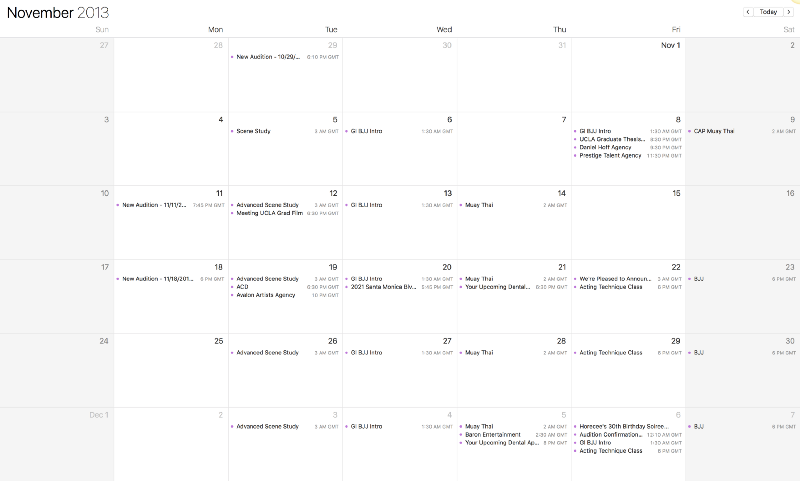
My calendar back then (before)
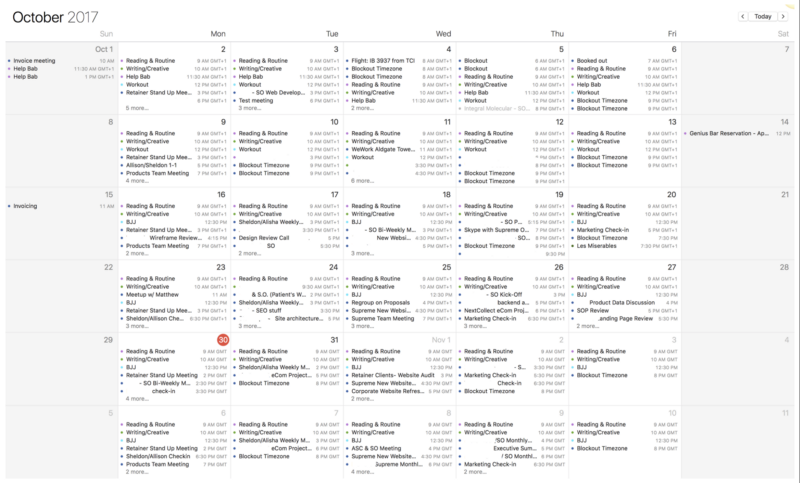
My calendar now (after)
Things I Learned
- Be humble and modest. You aren’t too good for any job or any opportunity.
When I moved to Los Angeles, I had no money. I was humbled to have a job working as a busboy at a college bar. I was humbled to sleep on a couch in my friend’s living room for over a year. I was humbled to take advantage of EBT benefits for low-income individuals. I thirsted to be humbled. I was even getting humbled by having my ass kicked in Brazilian Jiu Jitsu classes by everyone.
These elements put my back against the wall so I had to work hard to succeed.
- Learn to take criticism and advice. Let your ego go.
Recognize the times when you should listen and accept other people’s feedback. Letting go of your ego doesn’t mean allowing anyone to beat you up emotionally. It just means that when someone is giving you feedback, you ask yourself, “Is this person trying to help me or is this person trying to hurt me?” Most of the time, when someone gives feedback, especially when it is honest, it is out of love for you. This feedback hurts more than the feedback given by people who don’t really care about you, because it probably hits closer to home.
- Everything you’re not makes you everything you are
My failure to enter medical school and rejection from two gap year programs (the Fulbright in Taiwan and Princeton in Asia fellowship) led to me to unemployment with no short-term goals. Most people told me that a career in acting is unstable, and especially bad if you’re an Asian-American. There’s hardly enough roles to go around for any actor, and even fewer roles for someone ethnic. However, little did I know that my supposed weakness turned out to be my biggest strength. The fact that there were hardly any Asian-American actors gave me the opportunity to get ahead.
- Don’t talk until you’ve made it, and recognize that there isn’t a moment called “made it.”
I kept quiet all the time and worked silently. My greatest successes I’d only share with a few select individuals. The reason I did this is because in the act of talking about what you’re going to do, you are releasing dopamine. You get the same feelings as if you’ve done it already. By keeping quiet, you don’t allow yourself the reward of having accomplished something until you’ve… well, accomplished it.
4. Hired by My Dream Job
After six months of working hard in acting classes, my coach, Aaron Speiser, started to see my efforts. He took a liking to me because he saw my work ethic and a bit of talent too. He told me I had everything it took to really make it in this industry. Coming from a top acting coach, that might have been one of the biggest compliments I’ve ever gotten in my life.
One day, he approached me and asked, “Dominic, how is your Chinese?”
I told him that I’m conversationally fluent, not thinking too much about it.
Then he asked, “Are you available this summer?”
At this point I was getting a bit curious because I normally didn’t interact too much with Aaron outside of him critiquing my scenes.
“Umm, yeah, I was just planning on coming to acting class and auditioning here,” I replied casually.
“Great. Would you be interested in helping to coach Tang Wei alongside Michael Mann? I’d like to refer you.”
WHAT? Was I dreaming? I was at a complete loss for words from excitement and then suddenly fear that I wasn’t going to be good enough. Was this my lucky break??
“Yes.”
“Good, good. If she likes you, you’ll travel with the film set for the entire summer,” Aaron replied. “It would be a great opportunity for you to learn on a real film set with a genius director, Michael. There’s also a few other well-known actors a few other well known actors — Chris Hemsworth, and some other Chinese actor named Leehom or something.”
My first introduction to Chinese music back when I was 15 was listening to all of Wang Leehom’s songs. Now I was going to work with him on his first Hollywood blockbuster?
I was definitely dreaming.
“Holy shit. Leehom? Wang Leehom? I mean. Yes, absolutely, tell them I would do it for free.”
Suddenly, Aaron got upset.
“You’re a professional. Never, ever, offer to work for free. I’ll tell them at least $200/day plus overtime.”
I quickly apologized, “Yes, sorry, you’re right. That sounds fine with me.”
Meanwhile, in my head I was thinking, $200/day is insane. I was used to making like $7/hr as a busboy over at Q’s Billiard Bar. I was going to get paid $200/day for hanging out with movie stars? Deal.
“Great, then I’ll let them know and get back to you.”
Apparently, what happened was that Aaron was hired by his friend Michael Mann to coach Tang Wei, a famous Chinese actress, in her lead role in Blackhat with Chris Hemsworth, Wang Leehom, and Viola Davis. Tang Wei had previously been in many of the biggest Chinese films, including Ang Lee’s NC-17 Lust: Caution.
Tang Wei’s English wasn’t great, so she had a hard time understanding Aaron’s coaching and direction. Additionally, the film was slated to shoot around the globe, including Los Angeles, Hong Kong, Indonesia, and Malaysia.
One day later, I was sitting in Michael Mann’s office with Viola Davis, Wang Leehom, Tang Wei, Chris Hemsworth, and some other stars that I recognized. We were doing a reading of one of the scenes.
I was pretty much in shock this entire period of time. They threw me in the fire without a chance to catch my breath and I was just hoping they didn’t all realize that I was a complete fluke.
Fortunately they did not realize I was a fluke yet. I had done a good job acting confident. Every day, I’d work with Tang Wei to better pronounce English words, to better understand her character and the script. We’d break down scenes as I learned in acting class to simple objectives and actions.
Some nights, I would sit with just Tang Wei, Wang Leehom, and Michael Mann in his office and we’d talk about the script.
Then the moment of truth came: they asked me to clear out my summer.
Tang Wei liked me and I was going to travel with the production around the world for the next three months. I would get paid $200/day for showing up, plus a per diem on top of that, and get to stay in five-star hotels.
Our first stop? Downtown Los Angeles.
I remember one of the most visceral moments of accomplishment I’ve ever had in my life was that night we filmed on the roof of the Ritz Carlton.
I stood up there with this all-star cast and crew as the cool, crisp midnight breeze across my face kept me alert. The moon was out, and as I stood up there, staring out over Los Angeles under the stars, I felt a moment of bliss. How was this poor Asian kid from Wisconsin who was just sitting on a couch a year ago playing Diablo III and making tacos now making history coaching on one of the biggest blockbusters in the world?
We finished shooting at 6:30AM and I made my way home in my beat-down Camry on the I-10W. It was peace and quiet in Los Angeles. A major life milestone was accomplished that night.
Things I Learned
- Famous actors are human just like you. They just work harder.
Growing up, I always saw these famous actors on TV or at the theater. Like many people, I idolized them and make them out to be something more than human. Then I had the opportunity to work in an office full of these famous people. Well, the research is in, and they are so damn… ordinary, you wouldn’t believe it.
I remember walking into the production office and being in a kind of shock meeting all these celebrities for the first time. Then everything started to normalize. I’d walk into the office and see Chris Hemsworth sitting on his phone or computer.
Viola Davis would be talking about her kids and family. I even taught her how to say some words in Chinese (and no, she wasn’t a natural at it — no offense to Viola, it’s just that I imagine her being literally perfect in everything).
Wang Leehom would sit in the common area on his laptop with his studio headphones, re-mixing his next pop song.
The biggest thing I learned here is that these famous people, they are talented, yes, but they are all very hard working. They took their jobs seriously. They worked their butts off. They were professional. But in the end, it wasn’t like they had superpowers.
Understanding this allowed me to remove any mental blocks of I’m just not good enough because I realized that in fact, I am good enough, if I work hard enough.
- First, work for free. Then once you consider yourself a professional, you never work for free.
Work for free to gain valuable experience, however, once you have the experience, you are a professional now, and professionals charge money because their time is valuable. By working for free, you are essentially admitting you are not worthy and your time is not valuable.
However, this doesn’t always apply in every scenario. In his book “Linchpin” (an amazing book), Seth Godin talks about gift giving: the act of giving your time, or art, or consultation for free without expecting anything in return. This is a different concept — but in purely business and transactional circumstances, you should charge, and keep charging more. More on this later.
- Work hard and opportunities will come.
During my time in Aaron Speiser’s acting class, I showed up on time every day, sat in the front row, took notes, volunteered, and prepared scenes with scene partners each week. Aaron Speiser noticed this and knew he could count on me to help coach Tang Wei. This was not luck; this was hard work.
- Be in the right place at the right time.
I just said that it was not luck that I got the job working on Blackhat. However, this doesn’t mean that you can improve the likelihood of having specific opportunities. I predicted long ago that entering the film industry after college was good timing. Hollywood-China was just beginning to form more partnerships, and I’d be coming in at the right time. One year later, this prediction paid off when it came true with one of China and Hollywood’s biggest co-productions.
5. Then I Got Fired
I packed my bags and booked out my entire summer. I would now be living nomadically as part of a film crew traveling around the world.
First stop, we would film for 30 days in Hong Kong, the longest a Hollywood production has ever filmed there.
Upon arrival, Michael Mann was surprised just how famous his Asian stars were. The airport was flooded with Wang Leehom fans, and even during filming, the paparazzi presented challenges and even worse, giant advertisements on buses with Tang Wei or Wang Leehom’s face kept driving by.
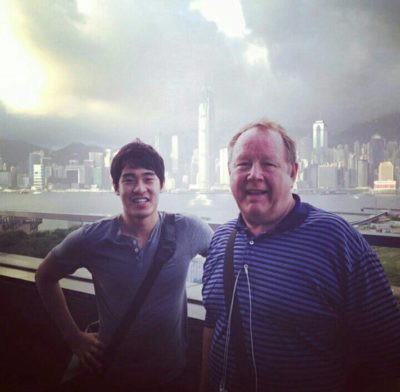
Legendary dialect coach, Tim Monich and I in Hong Kong
I had my first taste of luxury hotels when we stayed at the Marriott for a month. On the film set I would sit next to Tim Monich, the legendary dialect coach who has coached pretty much every A-list actor you can think of on all the top movies in the world.
Tim has a very special job; previously a professor at Juilliard, he works with actors to speak specific dialects correctly depending on where that character is from.
When no recorded dialects exist, he also has the creative ability to create new dialects.
For example, in Gangs of New York, together with Daniel Day Lewis he created “The Butcher’s” accent by fusing multiple different accents together in order to create something unique yet authentic.
You can imagine the amount of things I learned just hanging out with Tim every day — and the rest of the crew, which included Academy Award-winning costume designers, and more.
I also learned that being famous can be lonely or frustrating. During my coaching of Tang Wei, sometimes we’d want to go get something to eat, but she wouldn’t be able to go to certain places due to paparazzi or too many crazy fans. Chris Hemsworth could barely leave his hotel because he stuck out like a sore thumb being a 6’5” thunder god in the dense streets of Hong Kong.
On the weekends, I’d go out with the crew in Lan Kwai Fong, the bar district in Hong Kong. For my friend Andrew’s birthday even Chris Hemsworth came out and bought a few giant bottles of vodka.
Everything was amazing. I even bought my mom plane tickets to visit me in Hong Kong. Tang Wei needed me less and less as her English got better and better.
One of my favorite experiences was filming at the Ozone Bar at the top of the Ritz Carlton in Hong Kong, on the 118th floor. I heard it cost around $1MM USD per night to book out the entire space and shoot there. The crazy thing is that this translated to just a minute or less of footage.
One day I’d just gotten off work, and was about to go have some dinner with friends.
My hotel phone rang, which was strange because that rarely happened.
It was the unit production manager. “Hi Dominic. This wasn’t my decision, but unfortunately we’re letting you go. We’ll be booking you a plane ticket back to Los Angeles tomorrow.”
My heart sank. I hung up the phone and I stood there frozen for what felt like hours. Life had been such a rollercoaster — getting a dream job, a major accomplishment in life, and then getting fired only a month later. I wouldn’t get to go to Malaysia and Indonesia after all. My mom wouldn’t be able to come visit me either.
I was going back to Los Angeles to become unemployed again, to take odd jobs in commercial work or doing SEO for small companies. I felt like a failure.
But remember what I said earlier: Life is about transmuting base metal into gold. It is about turning the negatives into positives.
And what I did next changed my life forever.
Things I Learned
- Surround yourself with people more successful than you are.
In your group of friends, are you the most successful person? If you are, you need to start hanging out with people smarter or more successful than you. The smart get smarter, the rich get richer. The reason for this is that you are getting a constant influx of knowledge and motivation from people who are better at what they do than you are. This provides you with constant challenges and a chance to learn from others.
As many people have said, you’ll know how far you’ll get in life by looking at the 5 people closest to you.
When I surrounded myself with the most successful film people in the world in , I knew that I would be absorbing so many new ideas. If you want to learn basketball, you can either learn by playing bball with my 11-year-old half-brother, or you can learn from Michael Jordan. Who do you think you’ll learn more from?
- Be the crab that escapes the bucket.
Have you ever seen crabs in a bucket? They are all stepping on each other trying to escape. The moment one is about to get out, all the others drag it down.
That’s pretty much how humans are too. In many superficial friendships, the moment you start achieving more than your friends, they start dragging you down due to jealousy or other insecurities. This usually occurs through drugs, partying, drinking, and wasting time. True friendships result in support and celebration of your successes.
Be the crab that escapes the bucket once and for all. For me, it was moving across the U.S. to Los Angeles where I was able to redefine myself and what was important for me. Those few years were instrumental to my personal growth; meanwhile all of my friends back home were just partying every week and blacking out in the clubs in Chicago.
Not having money to do anything or friends to hang out with meant I spent long nights at Starbucks and the library, established a healthy workout schedule, and was able to learn and grow with new opportunities.
- There is such thing as a really fun, cool, and amazing job.
Tim Monich’s job was amazing. He literally got paid probably over a thousand dollars a day or more to go hang out on movie sets around the world and coach the most legendary actors in their roles. When he wasn’t working on set, he was doing crosswords and reading anything and everything.
He was always calm, relaxed, friendly. What a great guy. This made me realize that jobs like that exist out there. He was doing what he was passionate about and making an absolute killing.
- Always be prepared to have your dreams come true and then shattered.
There’s an epic line in Heat, directed by Michael Mann:
“A guy told me one time, ‘Don’t let yourself get attached to anything you are not willing to walk out on in 30 seconds flat if you feel the heat around the corner.’”
Seth Godin has his own version of this line in the book “Linchpin.”
“The linchpin is able to invent a future, fall in love with it, live in it — and then abandon it on a moment’s notice.”
The main message here is to practice non-attachment. Be okay with having your dream and losing it a week after. The key here is that practicing non-attachment, doesn’t mean that you don’t allow yourself to be vulnerable, to be hurt when you love too much. It just means that when you lose it, there’s no point in dwelling in pain. Move on.
When I got fired, I moved on to something better than I ever could have imagined.
6. Digital Nomad
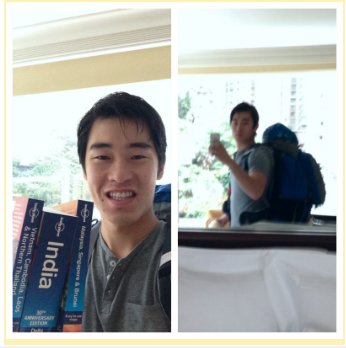
Embarking on my journey across Asia
When I got fired, I had two options:
- Be depressed and move back to Los Angeles.
- Use the money I had saved up to do my own tour of Southeast Asia.
I went with option #2. I packed my belongings in my suitcase and shipped it home. I kept the bare essentials and packed them in a backpacking backpack.
I asked the production to send me on a one-way ticket to Indonesia instead of Los Angeles. I would begin my journey alone working my way from Indonesia to Singapore to Malaysia to Vietnam to Thailand to end with hiking the famous Annapurna Circuit in Nepal. I didn’t have set dates on when I needed to come home — I just wanted to take my time, read, adventure, and be alone.
I was 23. I had no girlfriend, no job, no rent, no obligations, and I wanted to see the world. My goal was to continue to grow as much as I could, to learn as much as I could, and try as many new things as I could. Some of those things terrified me. Scuba diving was one of them.
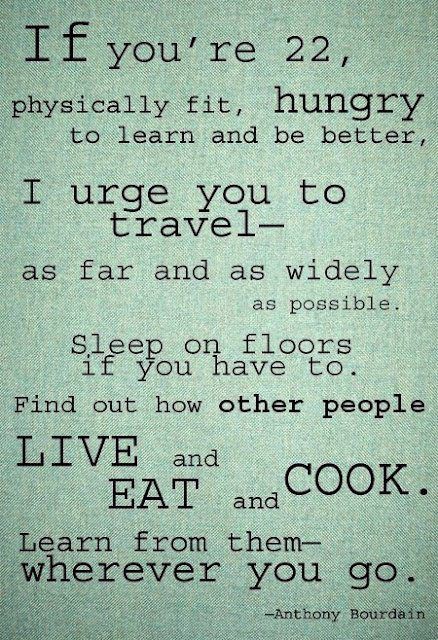
The background of my iPhone for that year
One night at a club in Ubud, Indonesia, another backpacker was talking about how amazing it was to go scuba diving off the coast of Malaysia. He talked about diving down to 30 meters, which is almost 100 feet.
I imagined being that deep in the water with only oxygen tank as a lifeline. It scared the shit out of me and made me feel claustrophobic just thinking about it. At that moment, I also knew that I would have to get certified. Confronting fear was my mission. It was the way to success, and as long as it didn’t kill me or seriously injure me along the way, I let fear guide me on what I must do next.
A few weeks later I had made my way up the coast of Malaysia to Pulau Perhentian, and had enrolled in my Open Water PADI diving course. What had I gotten myself into? I hate water and I hate the open ocean and I hate the unknown.
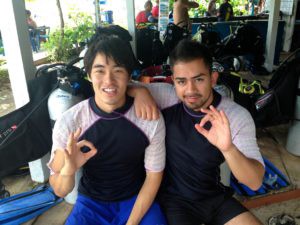
Open Water PADI Certification in Malaysia
“Okay, now dip your head in the water and breathe,” said the young Asian instructor.
Here goes nothing. I submerged my head into the water and instantly felt like I was suffocating. I shot back up.
The instructor reassured me. “Just relax and try to breathe. If you breathe too fast the respiratory won’t be able to deliver oxygen fast enough so you’ll feel like you’re suffocating.”
Wow, that’s just great. Okay, here we go. I dipped my head underwater again.
Now let me tell you, the act of breathing underwater is very strange. It essentially breaks the human mind. I started hyperventilating again and was just about to quit when I started to become aware of my surroundings.
It was like I had just teleported into another world. Fish were swimming everywhere around me. Clownfish were playing in their anemones, triggerfish were getting ready to attack me if I crossed into their territory, and schools of barracuda gracefully swarmed around. I stopped focusing on my breathing and let my anxiety die down while the underwater world blew my mind.
A few months later I went ahead and got my Advanced Open Water Certification allowing me to dive to 100 feet.
My trip spanned many months and my days generally were packed with sightseeing, eating, working on my laptop doing freelance SEO for a few American companies, and reading books.
The trip itself warrants its own post, but below are just a few photos and cliffsnotes of my time.
During my time backpacking, I started to focus more and more on my online business which would ultimately bring me back to Bali many more times over the next few years.
By the end of three months, I was starting to get anxious. I felt complacent. I felt that traveling was just another means of procrastination. After the first few temples, the first new historical sites, the first few mountains climbed, it all started to become similar.
I felt a false sense of productiveness. To me, traveling is a means to an end. It is a way to soak in as much knowledge and experience as possible to later use in other aspects of your life. But it seemed as if most people I met just wanted to travel forever, and hated the thought of “going back to the real world.”
This perplexed me. I didn’t want “going back to the real world” to be a symbol of something I dreaded. In fact, I wanted to “go back to the real world” and take what I’d learned and make a difference. It sounded easier said than done.
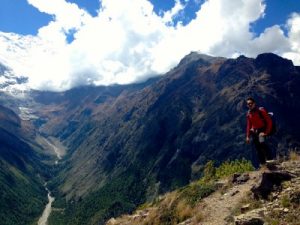
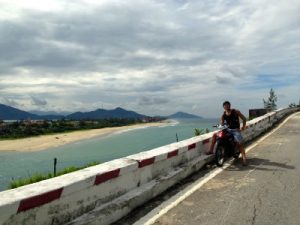
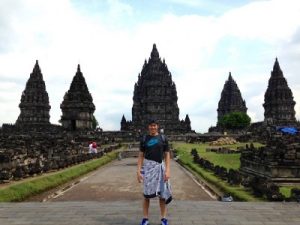
In the Himalayas, Motorbiking down the coast of Vietnam, Visiting Prambanan
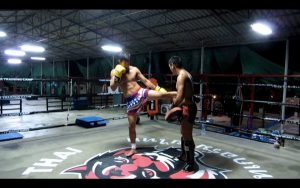
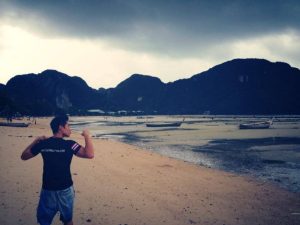
Muay Thai at Tiger Muay Thai in Phuket, and Partying in Ko Phi Phi
Things I Learned
- Too much travel is just another form of procrastination.
So many people have the desire to just go and travel the world. It’s a valid dream, but once you have that, what’s next? Is that all that is? Don’t get me wrong, the first temple is beautiful, the second beach club is still exciting, the third museum is very interesting, the fourth meaningless hookup is still fun, and traveling to the 30th country still has its appeals. You learn so, so much and have so much fun. But at some point, diminishing returns are a real thing.
The trickery of perpetually traveling is that it keeps you busy. You’re always moving, going somewhere, doing something. Because of this, you don’t feel complacent on the surface — but deep inside, I felt like I was.
Half the problem was that I felt like a leech. A privileged leech of a tourist providing marginal value to my clients while exchanging money earned for quick highs. As Mark Manson put it perfectly in his novel, “It was a strange life, replete with horizon-breaching experiences as well as superficial highs to numb my underlying pain.”
I wanted to do more. To make an impact. To create something. To deliver value. Experiences during my travels gave me the means to an end.
- Working as a digital nomad is easy.
During my travels, I met quite a handful of digital nomads. Similar to myself, these people bounced around country to country while working online as developers, graphic designers, digital marketers, accountants, consultants, writers, and more.
I always hear so many people envious of others being able to work location independent. Well, honestly, it isn’t hard to do. If you can make $1,500/month online, you can live fairly comfortably in Southeast Asia. Your lifestyle would be equivalent to making around $5,000/mo in many other parts of the world, but due to low costs of living, each dollar goes much further.
The jobs that can be done online now are endless. Go to Upwork.com and search for all the potential online jobs that you can get. There is no shortage and there will only be more and more.
- Loneliness is an important part of life to be embraced.
Backpacking gets lonely often. You meet people and then you go your separate ways. You feel small in the world, and insignificant. And it’s a great feeling — if you learn how to embrace it.
In her book Eat Pray Love, Elizabeth Gilbert said:
“When I get lonely these days, I think: So BE lonely, Liz. Learn your way around loneliness. Make a map of it. Sit with it, for once in your life. Welcome to the human experience. But never again use another person’s body or emotions as a scratching post for your own unfulfilled yearnings.”
Now when I’m alone, I start to enjoy it. Loneliness forces you to acknowledge the thoughts in your head and have uncomfortable moments of reflection with yourself.
7. Real World (Rejection)
I moved back to Los Angeles. One of my other roommates moved out so this meant that I could now upgrade to the master bedroom and afford to pay a bit more for rent due to savings from the film and my SEO business.
I was eager to apply the experiences I had while traveling in a practical way. I hoped that my acting ability would be improved as well since my worldview expanded. It didn’t go that well though, considering my first scene study class back I completely and utterly bombed.
I went out for a number of auditions, but from an auditioning perspective, honestly no one really cared that I worked on a large film as part of the crew, even though I had a substantial role. Some of the most promising roles that I went out for, such as a supporting role in American Sniper called “Asian,” were cut from the film all together. Other auditions, such as for the lead role of Wes Gibbins in How to Get Away With Murder, I knew I had lost before I even opened my mouth, being the only non-Black person auditioning.
Instead of letting these early failures bring me down, I decided instead to put my energy towards creating something for myself. I heard about an Asian-American Film Fellowship sponsored by Sundance Institute and figured that it would be a good goal to submit something for it.
There was a 24-hour Starbucks down the street in nearby Westwood. I would end up going there every single night until 3 or 4AM to work on my script called All-American Kid. After months of hard work, I finally submitted it to the Sundance Institute.
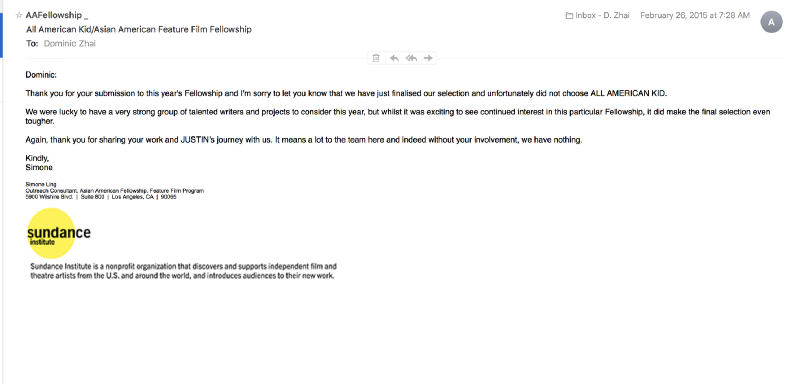
Letter of rejection 🙁
It was a major buzzkill to have worked on something so hard but to not see it come to fruition. Regardless, I looked at the positive and decided that I would keep working on the script and eventually make it into a reality (and almost 3 years later, last week, after countless revisions, my team and I finally have a working draft to use for our pitching).
Aside from a few small bookings (including a role in Love Arcadia that starred at a few film festivals), overall things looked more and more bleak. I decided to leave Los Angeles and enroll in a summer Shakespeare program in London, England. Once again, I packed all my bags and moved overseas.
London was a magical place full of incredible theatre and beautiful architecture. It was unlike any place I’d been before and to be attending the London Academy of Music and Dramatic Art was a thrilling, yet intimidating experience.
I was surrounded by passionate, young, and talented actors and actresses. I was also the only Asian person in the entire school, which was interesting. At the end of the day, drama school is about being open and uninhibited.
In case you were wondering, your typical day looks like this:
- Throwing a ball to each other. The goal of this is to work on acting and reacting, listening, and being in the moment.
- Acting like a fool, dancing with your eyes closed. The goal of this is to work on being uninhibited. To simply not give a fuck about what others are thinking and just do you.
- Improvisation. The goal of this is to listen to what others are giving you, and then to act and react accordingly.
- Wear a mask and do some shit. The goal of this is to act with physicality because your face is hidden.
- Rehearse a play. The goal of this is to try to figure out what the fuck Mr. Shakespeare is writing about and then act it out truthfully.
Okay. In all seriousness, you get out of drama school what you put in. If you want to take the games and exercises seriously, you will learn a lot.
These months were full of new growth and learning, especially with the opportunity of viewing world class theatre every weekend with friends. But as fast as it started, the semester passed and I found myself back in Los Angeles again, without substantial acting jobs, and with no great direction. I was back at ground zero.
And then the phone rang.
Things I Learned
- Fall in love with the process.
Spending every night alone at the library or coffee shop working on my screenplay (which amounted to nothing thus far) wasn’t a waste of time. In fact, I learned valuable skills in writing, storytelling, and more. The experience forced me to read books like Story by Robert McKee, On Writing by Stephen King, and more. To this day, the screenplay has not been made, and I’ve invested hundreds more hours into it. It still isn’t perfect, it still is a work in progress, but I’ve had a great deal of pleasure in creating something from just an idea. I loved the process of writing.
This principle applies to everything in life. In Brazilian Jiu Jitsu, you may have a goal to become a blackbelt after a decade, however that end result isn’t what gives you happiness. Instead, it is the ups and downs along the way which create happiness.
Don’t sell yourself short by taking the easy way, or hoping you’ll win the lottery, or that you’ll get lucky in order to achieve something. You lose the most fun and fulfilling part: the process.
- Think in opposites.
In drama school, one of the most important things you’ll learn is about opposites. It will change your life if you can understand this concept and apply it to your own life.
“In all of us there exists love and there exists hate, there exist creativity and an equal tendency toward self-destructiveness, there exist sleeping and waking, there exists night and there exists day, sunny moods and foul moods, a desire to love and a desire to kill. Since these extremities do exist in all of us then they must also exist in each character in each scene.” — Michael Shurtleff.
Think about a few scenarios:
If you need someone so much, the opposite is probably true — you probably resent that you need that person so much.
So often we say we don’t want something, when in reality we want it so bad.
You crack jokes to cover up a situation with humor when there is so much pain inside that you’d be crying otherwise.
We bully other people because we are insecure within.
Life is interesting because from one moment to the next, it is never dull. Emotions can go from joy to pain and crying in a second’s time. This also separates beginners from professional actors — the ability to understand the opposites in every moment, the conflicts between the two, and how to never have a dull, predictable moment in their acting. Life is unpredictable.
- Be vulnerable.
“Actors must have the soul of a rose and the hide of a rhinoceros. You must continue to let the rose become more sensitive; you must also increase the thickness of the hide. Translate criticism for yourself; see if it’s apt. If it is, don’t deny it, learn from it. If it’s not, move on.” — Larry Moss
Being vulnerable perhaps is the most applicable thing I’ve learned from acting. Without being vulnerable, you cannot build deep bonds with people, you cannot let your guard down and take constructive criticism, and you cannot grow by truly understanding yourself.
Too often we try to protect the soft parts of our soul so much from being hurt by others, but we must realize that at the same time we are also shielding the good out as well.
By being vulnerable, you will instantly start being liked more by others because you can bet when you are self-conscious and vulnerable, many others feel the same way but have been too afraid to voice it. You exposing yourself first allows others to relate on a deeper level and they will gravitate to you because of it.
In acting, the audience pays to see your vulnerability. You must be figuratively naked in front of your audience. They want to see your raw emotions, your pains, your vulnerability because in their own lives they are too afraid acknowledge them or show them to others. The same thing happens when two actors fall in love on screen: the audience falls in love too because they are getting the same feelings of pleasure through imagining that they had that in their lives.
You must be able to make fun of yourself, to be silly, to show love, anger, jealousy, lust, and everything in between in order to be fully uninhibited and open.
- Truly listen.
Too often in our lives we have a conversation and just wait to say what we have to say without truly listening. In acting, this is a problem because we pre-plan how we are going to say a line before listening to the other person and reacting appropriately.
Truly listening doesn’t just mean just listening to the words someone is saying. It means listening to the subtext of it. In acting, the words are the clouds and the subtext is the ocean of murky truth below. Rarely do people say exactly what they want, and sometimes they don’t even know how to. It is up to you to hear what they really mean and identify the subtext.
This will aid deeply in your relationships with people, whether it be communicating with your significant other, understanding the needs of a new sales prospect, or marketing to people (and their subtext).
- No one is evil (in their own eyes).
Hitler was responsible for one of the deadliest conflicts in human history. He was responsible for killing an estimated 19.3 million civilians and prisoners of war. He is one the greatest villains of all time for the atrocities he commited.
However, Hitler did not see himself as evil. He saw himself as a savior of the German people, helping the poor, bringing prosperity to his people from the invading immigrants and Jews. As an actor, you must understand that human beings always justify themselves. Even the greatest villain of villains doesn’t wake up in the morning saying he is evil. He has a justification, an explanation for how he is making the world a better place or whatever else. Think of any superhero movie.
Actors often judge their characters, but if you judge them from your lenses, then you’re missing the point. You haven’t gone deep enough.
In life, sometimes there are people who come off as jerks. How do you get to these people? You must be able to relate, to understand how they justify themselves and think on the same wavelength. Then you’ll be able to connect deeply and understand why people are the way they are.
The next time there’s someone who you don’t like, challenge yourself. Step into their shoes. Try to understand. Get them to like you. You might find out that they have a viewpoint that you never had before.
- Understand human behavior.
When legendary acting coach Uta Hagen was writing one of the greatest contemporary acting books, Challenge for the Actor, she did a direct comparison with a close psychologist friend on her notes about human behavior through her study of acting.
Needless to say, her notes on human behavior were very closely correlated to academic studies on human behavior, including fundamental needs, wants, and more.
One of the most important keys to acting is that every single person at every single moment of their life has an objective (a want) as well as an action to get what they want. If you can identify what your character wants at any given time, then you will add a vital element of truth and direction in your work. The same applies to life.
Airport Example: Your flight is delayed and your objective is to get home to your family. First you reason. Then you beg. Then you guilt. Then you harass. Then you threaten. Those are your actions.
Once you can always identify what you want at any given time and the actions you are taking to get what you want, then you can also start to see clearly other people’s wants and how they are trying to achieve those wants.
8. Lost in the Pacific and Scaling Up
“Hi Dominic, it’s Daxing. I’m helping to produce a film and wanted to know if you’re available to coach a famous Chinese celebrity, Zhang Yuqi, on her next English-speaking role.”
Just like that, I was brought onto a Chinese-US co-production called Lost in the Pacific to film in Malaysia at the Pinewood Studios for three months.
The cast was composed of a number of working actors from popular TV shows like “The Walking Dead as well as Brandon Routh who previously starred as Superman in Superman Returns. The top billed actress was Zhang Yuqi, who was a star in her country, China.
The Chinese film industry had been exploding over the years. The Chinese studios have been buying up stakes in American film companies like none other. For the top 6 movies of 2017 that premiered in China, China brought in $983 million out of a $1.69 billion total.
I wanted to be a part of this phenomenon. I was initially asked by Zhang Yuqi’s team to teach and coach her on all of the dialogue in English, but on the other hand, I didn’t feel like wasting 3–4 months of my life in order to be someone else’s English teacher. Instead, I provided the condition that I would be happy to help if I was also given a role in the film.
They agreed, we signed the paperwork, and I was flown to Malaysia. Just like that, once again I had left the United States. Little did I know at that time, I would not be coming back any time soon.
Working on the film was a lot of fun, and I was able to meet many talented friends from the China side including Sunny Wang 王阳明 as well as from the U.S. side like Vincent Ward from The Walking Dead.

It’s a wrap! 张雨绮 & I.
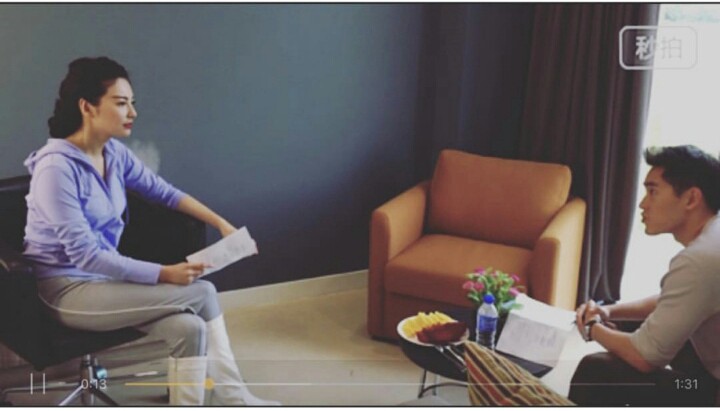
I decided to make the most of my free time during filming. Whenever I wasn’t working, I poured energy into my internet business. I decided I wanted to grow the company and rose up to the challenge. At this point, I had already hired two other contractors to help me balance my workload, and ended up hiring one more person, a British guy based out of Bali, Indonesia. This was perfect because it gave me an opportunity to travel back to Bali after the film wrapped and meet up with my team, now four people.
Hiring people meant increased costs, and as a result, this also meant we needed to generate more sales to support our growth. My good friend ADHD Eric gave me the advice that I should pour my heart and energy into scaling the business for a good six to eight months. Then afterwards, it would set me up for a stable agency that would generate enough revenue to support my lifestyle. This made sense to me, and I figured it would be as good as an idea as any to spend more time on my business because I had some great opportunities to grow as well as learn Chinese and establish myself in the Chinese film industry in the meantime.
I flew over to Bali and met up with my friends and colleagues. We began working together every single day, and even managed to scale Mt. Rinjani, an active volcano in Indonesia, along the way. Life was good working out of coffee shops and co-working spaces, most notably Hubud in Ubud, Indonesia.
I took meditation classes and attended yoga classes at the Yoga Barn as well. There wasn’t much of a party scene in Ubud, which was actually advantageous to me because I wouldn’t have any urges to go get drunk. Instead I could just sit down, focus, and do the work.
Working with Leigh, now my company’s VP of Digital Strategy, was a great learning experience. I’ve rarely met someone so passionate about self-growth and learning. I didn’t have much extra money, but I paid him a cut of revenue to help manage some clients that I had. This ended up being something like $1,500/month, which was just enough to get by comfortably in Ubud. Ben, a new hire, helped me build a simple new website for the company which cost about $500, and we were well underway. Now I had to learn how to scale.
Scaling a business is tough in many ways, but ultimately the goal is to dissociate my time from profit. Generally, the more time you spend, the more money you make. However, time is finite. It’s when you can make money when you sleep that you finally have a scalable solution. This is what I set out to do. If you’d like to learn more about this in detail, I’ll be sharing in another long-form post how to get from zero to one.
After a productive few weeks in Bali, I set out to make the move finally to China.
Things I Learned
- When it comes to a startup (and anything else), the team is everything.
Looking back, I realized how important the team is to the success of any collaborative project. In the building of an agency, it’s incredibly important to hire the right people. Noah Kagan puts this perfectly in one of his blog posts. The absolute only people you should hire are people that are Great Teammates, but Underdeveloped Talent. The early team was composed of mostly great teammates, but highly underdeveloped talented. As a result our costs were low and this allowed the business to grow through re-investment of funds into the business. The team was not perfect though — one of the first major hurdles we ran into was due one awful teammate. He had heard of the book The 4-Hour Workweek and without reading it, decided he would work for 4 hours a week. As a result, we lost many of our top clients and drastically stunted growth. I had to learn this the hard way, and I also was learning to become a better manager of others.
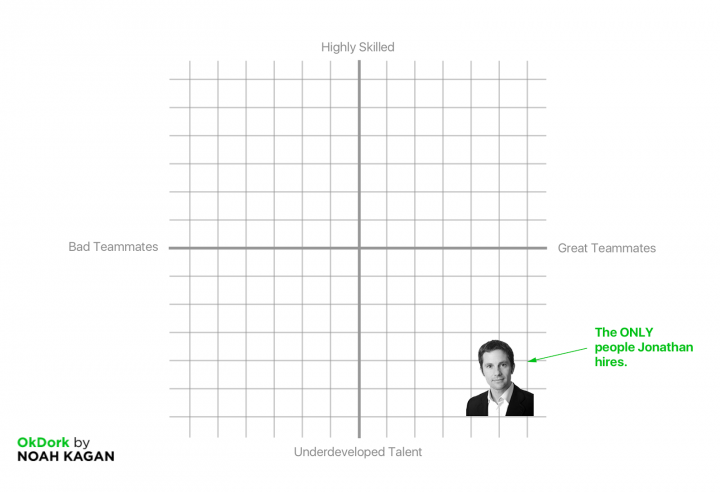
- Owning organic traffic and SEO is the best and cheapest way to grow a business.
In the beginning, our offering wasn’t anything special. We were good value for the price we charged, but nothing more. However, we continued to grow, mainly due to the fact that we organically ranked extremely well for top keywords that our target audience searched for. If you’re starting a business, the only sustainable way in my eyes is to have organic leads.
This means that you aren’t paying extra for advertising — instead you’re taking advantage of targeting people who are already looking for you and what you offer. Even from the start, no matter how shitty our own website was and how unprofessional everything looked, the website got us leads. And we converted those leads into revenue.
How did we rank so well? It all starts with niching down.
- Find your niche. Own it.
In today’s market, there is no shortage of people who can do digital marketing, who can build websites, do SEO, or make designs. So how do you get the attention of potential customers and stand out from the crowd? Be a specialist in your industry. For us, we specialized in the life science sector given my background as an undergraduate and research experience. I was familiar with the products and services that my audience wanted to market. I had a story that was consistent with this niche — that I worked as a lab manager and handled the ordering of life science reagents for my lab. Instantly this gave me a huge one up on all my competition who didn’t specialize in any particular industry, and instead had a “we work with anyone” approach.
This niche carried over to SEO and inbound marketing as well. We held and still hold top positions for all of the keywords that our prospects were searching for. And to further back up how important it is to niche — at one point we decided to actually ‘un-niche’ and open up our services to any target audience and, well, it didn’t go great.
What happened in those months was a large influx of leads from all sorts of industries, and even though we ranked #6 for “SEO Consulting Company” worldwide, our close rate of new leads went to 0. We lost our comparative advantage and unique differentiator. Our services became commoditized and we lost all pricing power. Quickly, we decided to go full on to dominate our industry niche. Today I can confidently say that I truly believe we provide the best digital marketing service offerings in our entire industry.
9. China
Pollution, guanxi, diarrhea. These three words sum up my experience living in China.
The pollution in Beijing is like a mystical thing if you haven’t experienced it firsthand. It’s godawful. People complain about the weather in London and how the rain and cloudiness gets to you. Well, in Beijing it’s about 10x worse. It is cloudy, but not because of the clouds, because of pure dirty, toxic smog. Even if it’s a beautifully sunny day, the layer of smog blocks out the blue sky and instead what you get is a drowned out, gray, fumey type of day that smells like car exhaust.
Some days the pollution gets so bad that they have to shut down roads like some sort of post-apocalyptic world where the air is so dense with yellow fumes that your visibility is 10 meters.
This had a dramatic impact on my mood, and combined with incredibly slow and firewalled internet made me constantly tired and unproductive.
Oh, and I forgot to mention: Diarrhea.
The first week I was in Beijing, I went out clubbing and ate street food. The next morning, I literally died from food poisoning and diarrhea. During my time in China, I got food poisoning multiple times and so often that essentially I didn’t have a solid poop for the entire year. I checked with my friends and they told me that’s just how it is in China.
Now, I don’t want to make this post about China-bashing. In fact, China was a very special place despite the complaints.
Everything in China operated on guanxi, which means relationships. I knew this before getting to China, which was also one primary reason for going. Building relationships was one thing that I was very good at. I could grow my business in China and hope to enter the Chinese market, and, in addition, I could become a working actor purely through connections and networking rather than auditioning.
As a major life goal, I also decided I would finally learn to read Chinese and be able to have a fluent conversation in Mandarin. I promptly signed up for online Chinese classes at $7/hr and started putting myself in as many rooms as possible to network and meet the community in the entertainment industry.
I had niched down my acting career to being the best Chinese-American actor in Beijing with fluency in the language. Quickly, I began to meet a lot of people in the fast-growing yet small community. My next door neighbor, a record producer named Jon Yen, introduced me to his friends in the entertainment space as well.
Everything moved fast, and I started booking some roles, exactly as I predicted: through my network. No auditions, just straight to set. The problem though was that productions in China were absolute shit. There’s no unions which means that actors are virtually unprotected from getting completely abused and ripped off. You work extremely long hours and get fed the worst possible food you could imagine. There was no glamor in the local Chinese productions.
Actors are regularly getting injured, overworked, scammed, and unpaid. This is the nature of the film industry in China. However, on the flip side, money flew around and investors wanted to make content no matter how bad it was. For an actor, at least you can be working. As a result, I ended up booking a number of smaller roles in bigger productions, and also bigger roles in smaller productions.
During my time in China, I also further grew my online business working long nights every night, staying up until about 2–3AM. I brought on a number of people and in just two years my company went from a total headcount of about 6 including contractors to about 15. With every dollar earned, I reinvested in hiring and improving our process. Our revenue doubled year over year with about 300% growth from 2016 compared to 2017.
Today as I launch this blog, it’s the end of 2017 and our team is now around 25 people. Our growth has seen no slowing down, and we continue to own more and more market share in the life science digital marketing space. We continue to learn, to improve, to change, and to develop ourselves internally.
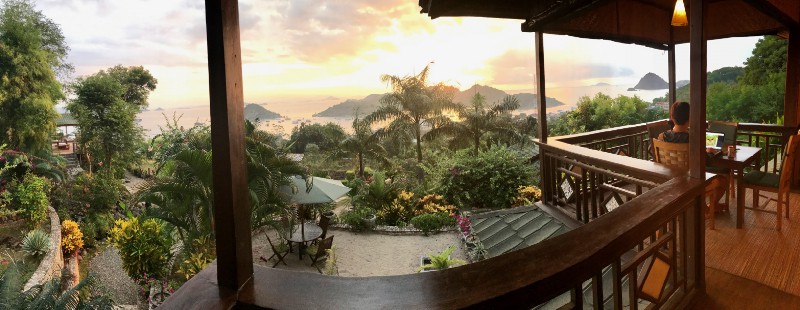
Working remotely in the island of Flores, Indonesia
10. Why? And what’s next?
I started this blog to just give you a real glimpse into my journey and what it took to build a 7-figure business from scratch, star in a few films, and travel the world. I wanted to share the hurdles I encountered in my journey thus far and how they were a necessary part of my path. Some of the highlights include failing the MCAT, getting fired from my dream job, and all the other endless rejections.
Kanye West said it the best, “Everything I’m not made me everything I am.”
Meanwhile, business continues to grow, I’m pitching my latest film project both in the United States and China, and I’ve finally launched Why You No Doctor (WhyYouNoDoctor.com). I’ve gotten so used to being busy, tackling the next challenge, pursuing the next goal, that I don’t see an end in sight. But that’s because I’ve fallen in love with the process. As soon as I accomplish one thing, it’s on to the next, and that’s how it should be. It’s what makes me happy. I can only imagine where my business will be in 2020, what successes I’ll have in the entertainment industry, and how many lives I can possibly impact through WYND.
Hopefully you found this post to be helpful. Currently I’m bouncing around London, Berlin, and will be planning my move to Shanghai in the next few months.
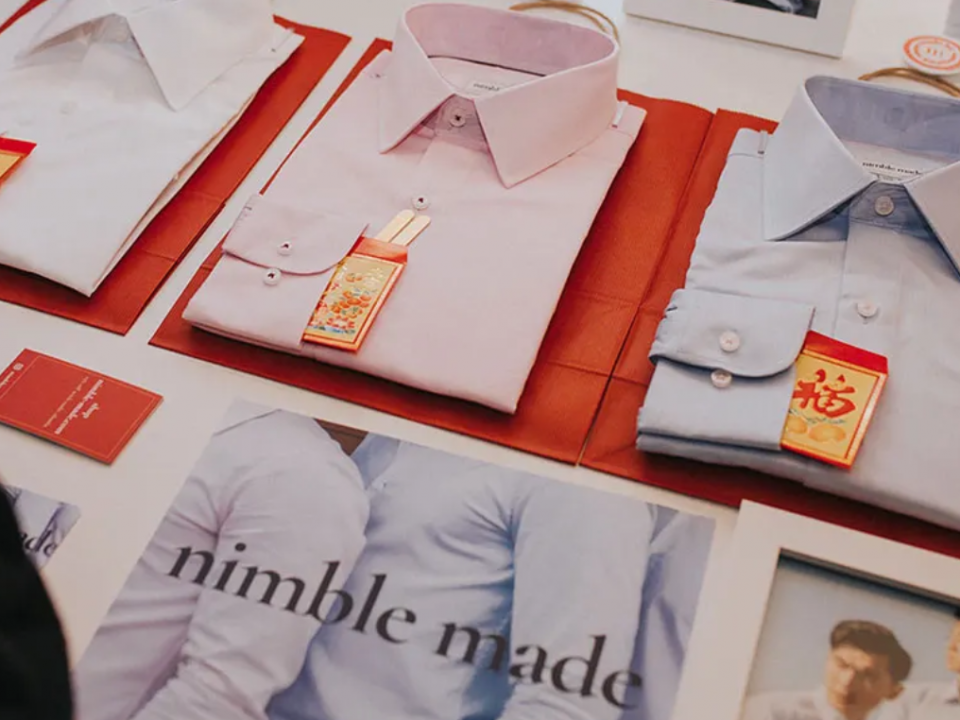
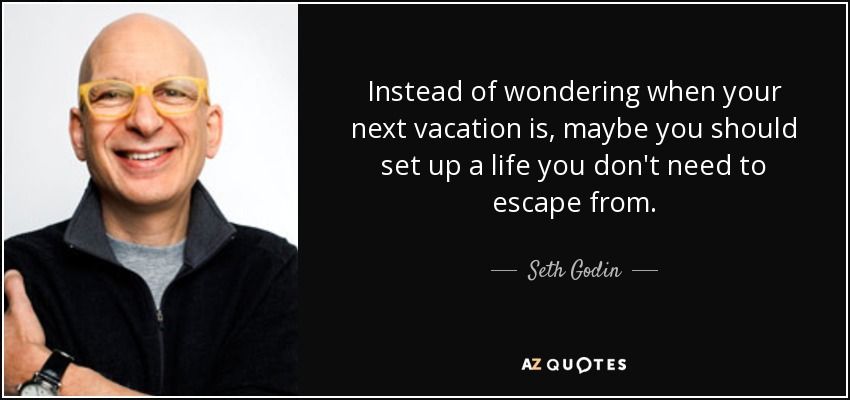

31 Comments
Reading this article is so comforting knowing that I still have a chance to take the right path. At 22, I still have uncertainties, switching jobs from one to another, clueless about what will happen tomorrow, Friends keep on telling me to get a life and stay focus but it’s so hard to maneuver when you’re not happy with your work. Still financially and emotionally not ready to settle down, I divert my focus on my main goal, travelling which is quite hard when you’re locked up in a dreadful 8-hour work five times a week- which you really loathe. Unstable emotionally at the moment, your blog gives me comfort and couldn’t resist a smile to each of the sentences I can relate to. This is inspiring. I should keep moving and I may consider myself becoming a digital nomad just maybe ( I still have the fear and I don’t know if it will work on me), thanks to you!
Hi John!
First off, thanks a lot for the comment!
Secondly, 22 is SO young. You’re life is literally just beginning. If you’re not happy with your work, then maybe it isn’t the right work for you and the time is now to start trying new things and finding things you’re passionate about. Be sure to give things a fair shot, and work hard though and be brutally honest with yourself.
Travelling is a good goal but it is a means to an end. Perpetually travelling can also lead to unhappiness because travel makes you always feel productive and you’re moving from place to place but at the same time it feels like you can be running on a treadmill going nowhere in the end.
That true happiness comes from within – you got a ton of time and a tremendous future ahead of you. You just gotta start hanging out with people, putting yourself into communities of interesting people to help spark ideas and motivate you!
Good luck on your journey my friend,
Dom
Thank you! I’m looking forward to hear from your blogs. Keep inspiring!
What an interesting blog post! Thanks for sharing your story. Good ole Q’s in West LA. I used to go there all the time.
Haha thanks Melissa!
I’m very happy that you had (and have!) this thirst for improvement and adventure. Too often, I recoil from even the scent of failure and the potential loss of face, unable to see the lesson behind the error. I could not help but smile as I read your “Things I learned” sections. As a student in university with a year left on the timer, I’m momentarily buoyed by reading this post. Stay safe hahaha
Kitty – a great quote from one of the greatest acting coaches of all time, Larry Moss on failure:
“Being an adult means to be able to challenge yourself with the confidence that even if you fail you still have value. It’s a terrible burden to believe that if you try and fail, then you’re worthless. That’s not true. If you try and you fail, you learn something.”
Keep moving along! Embrace obstacles. Check out the book, “The Obstacle is the Way” as well.
Very inspiring. Keep up with the good work and thanks for sharing. x
Thank you Cynthia! I’m glad you enjoyed the post.
Great post and so inspiring! I’m in a transition period (or existential crisis) where I recently left my medical residency and now am trying to figure out what’s next. Do I open up my own practice or do I leave medicine altogether or…? Still taking time to rest and heal so I can move forward. This is probably the best thing I’ve come across during this difficult time. Thank you again!
Hey Xixi!
That’s great your in the transition period. Just remember that you might go backwards until you go forwards – and that’s just part of the process! Think of a loop – up, down and then back up! Enjoy it.
Dom
Hi! First of all, thanks for the follow because I wouldn’t have been able to know about your blog, travels and what you do without it. Second, holy crap! I just read your “How I built a Multi-Million dollar company…” and WOW felt like it was exactly what I needed to read :sob: especially as an Asian-American, a recent grad & someone trying to get into digital marketing. Aka find their way in the world as an unemployed post grad haha
I feel like I have a million questions coming haha, but right now I just wanted to take the time to thank you for that. I just related to it so much and it helped me realize that my perspective is real and that someone else shares it, but that there were so many parts that were like “hey, that’s a good point!” I also dread when traveling people saying “ugh back to the real world” like you said. I want to make something of myself in this “real world”.
I’m a writer and have been trying to Copywriter for ad agencies but haven’t had much luck being hired as a recent grad. Some days I know that my writing is what I’m passionate about but other days I feel like more is out there?? So I guess, at least for now, my question is..how do you keep yourself motivated? As a digital nomad traveling and seeing everything, how do you keep yourself focused and stick to your work?
Hi Adre,
Thanks for the comment. To answer your question on how to keep myself motivated – I guess the main thing is just I feel like I start to really enjoy the challenge and process. Whenever I look back at the times in my life where I have been the happiest, it was when I was deeply working on something even if it was challenging. Tackling challenges, addressing the things I feared helped grow me as a person and I am addicted to that feeling of the grind.
I realized that a lot of other things like just going out to celebrate no particular occasion, sitting there at happy hour with friends, whatever, they were nice but didn’t leave me longing to keep doing that every day. I didn’t want to live my life without constantly doing things that make me happy, and I realized simply what those things were and did more of it.
Traveling around as a digital nomad is nice but what is more important is that I realized that travelling is the means to an end, not the end itself. The more I travelled, the more I learned, the more I wanted to share that and incorporate those experiences into my own life and career. It isn’t really that motivating to just go see temples and lay on beaches endlessly, instead it made me more ambitious to focus deeper on my work and personal characteristics.
Best,
Dom
Hi Dom,
I came across your blog because a friend mentioned it was relevant and linked it to me – and I was blown away by your journey and how much of what you said resonated with me. As an Asian-American who followed her parent’s demands, went to law school as an act of defiance (no, even law school was not enough for them) and finds herself stressing now about moving out and getting to a more supportive environment, I’ve been thinking lately about the inevitability of resigning myself to the life my parents want for me, but not what I want. It’s only been this past year that I began to love myself more and come to terms with the fact that my passion does not lie with law, and that I might never satisfy my parents. I started a small online business two years back that’s been growing steadily, but have hesitated on biting the bullet and leaving, knowing it’d impact my relationship with my family, and that whether I’d be able to scrape by is still up in the air at best.
I guess what I’m trying to say is, thank you for this article – it’s given me renewed hope when I was running on reserve, and it’s reminded me that there are such things as jobs and work that you can choose for yourself, that you don’t dread. If I might ask a question, how did you handle your relationship with your parents during the lowest of times, and when you were out exploring yourself? Do you have any tips for anyone in these low times?
Hi J,
I think you said it yourself, at the end of the day, the life your parents want is not what you want. Personally, my Mom was actually okay with me living and figuring out my life for myself, as long as I didn’t ask her to come and support me.
My Dad tried to be understanding but also he really wanted me to become a doctor or scientist, etc. In the end, I wasn’t asking for their support and I was going to live my own life so I told them the reasons why I made the decision I did, and that was that. I had to figure out for myself, what I wanted and what made me happy, and that was a personal decision. My Dad could choose to understand, or not understand but in the end it was my life so I just did what I wanted to.
Honestly, the right decisions and choices are usually not the easy ones. That’s just part of life, but if it feels right to you, then you have to go and do it and trust that in the end your parents will come to terms with it and understand, or they won’t. Ultimately it is your life to live. No regrets.
To your journey,
Dominic
Really amazing to hear your story man, truly inspirational.
I was wondering how you still keep fit even with that gruelling schedule?
Hey Michael,
It’s simple. Just make it a requirement to work out and you’ll find the time. In many ways working out is a good break and make you more productive.
Best,
Dom
Stumbled upon this post on FB in subtle asian traits (lol) and glad I decided to check it out- it’s so so reassuring to know that other people shared the same uncertainties and fears! I’m a second year university student in engineering, with subtle but relentless pressure from Asian parents to go into medicine (eek) but unsure if either of those things are where I ultimately want to end up. In the meantime I’m taking as many English and visual arts classes as my curriculum allows because those are more personally fulfilling, (at least for now, who knows what’ll happen later). I know I haven’t even reached the scariest part of adulting yet because I’m still in school but I guess I just wanted to say thank you for showing that having the courage to pursue unconventional paths is worth it. I hope someday I’ll have to someday have the confidence to start over with a clean slate sometime as you’ve done, thanks again for your reflections and best of luck in all your feature endeavors!
Hey Jess – thanks for the kind words. Just work hard and do the best you can because you’re building skillsets that will ultimately help you a lot in the future.
Hey you might not think i’m serious but if i quit my job right now and show you, will you hire and Teach me as your apprentice? Or atleast let me travel with you and learn new aspects of life. No homo.
nice share, but you didn’t have nothing though back then, I think the quality of having a “seize-the-day” mindset was definitely rewarding. As much as I understand being humble, your constant motivation to try new things and to actually REALIZE that the clock is ticking are credited to yourself :).
Also, really nice of you to want to share with others your experiences, continue giving back to your community!
Thanks Jennie!
This has been so inspirational. I felt I could relate to you in some areas, like packing my bags and left the U.S. to explore opportunities and adventures. I graduated in 2016 with a Civil Engineering degree but I ended up move to Taiwan (my childhood home) to pursue in piloting. There is a huge demand for pilots here and the 2 major airlines here were hiring through a cadet program. But before I could even apply I needed to finish my compulsory military duty as a Taiwanese citizen, and so I served. It was quite interesting and quite an adventure, but I won’t talk about in details here. Then I finally applied for cadet and took the exams, which I have been studying my ass off for many months.
I failed it.
Although bummed, I still applied for jobs in Taipei City and got into an environmental consulting company. While being here I got into a relationship, and did a lot of side missions here and there (teaching English, filming for church, etc…). But, deep down I feel really lost and still unsure of what I’m doing with my life, I’m not making much money either, I don’t have a stable direction career-wise, and I haven’t got into any new companies that I applied here so far for civil engineering. I don’t like my current job and seriously want to leave. However, your story is a real inspiration for me on what I can do to get back on my feet. I have always been interested in filming too and seeing your post about your path in this made me smile and more confident. I’m starting to really believe that successful people are also very ordinary people (it’s so true!) and that they DO work hard. And so, I hope that I can find my passion and be able to work hard for it, no matter the risks. I really enjoyed you putting down summaries for each thing you learned in your mission. Thank you once again for making this page.
Dom,
I want you to know that even with this one post you are successfully accomplishing your goal of encouraging and inspiring the next generation of Asian Americans in pursuing their passions. I have just recently graduated with a degree in electrical engineering and even though I have a job lined up I’m taking a small risk by delaying my start date by 8 months in order to pursue creating a digital marketing agency. I am currently traveling in Asia (Taiwan and Hong Kong) and will be returning soon to the US to officially get to work. I have had doubts of whether I should spend the time or effort of starting my own venture, but this post has truly solidified my resolve to try.
I saw your post in subtle Asian traits and would love to be a part of your mentor group. I would love to be able to speak with you about specifics in digital marketing and entrepreneurship and be able to get your advice in future obstacles when’s I face them. Thanks again for sharing your story. These are the types of posts that will inspire the future Asian American actors, politians, and CEOs!
Gabriel Wang
Wow, this post is exactly what I needed right now! You have been doing all the things I want to do, and to hear about your successes and failures makes my journey seem much less daunting. Thank you for introducing yourself on “subtle asian traits”! You offered to be a mentor (the kindest thing), but it seems like you have so much on your agenda already! Please keep posting blogs about your process; they are a treat to read!
Great article it resonated with me a lot considering how strongly I feel about the Asian American community and the need to change old beliefs and stigmas we face in Western society. I’ve also traveled in Asia alone for the half part of my last year trying to find myself and doing online business and trading. I am now at the age of 23 and a self-made millionaire (as of last year) but I am still having a burning passion for wealth and recognition and It feels like I was in the exact same position you were in when you were my age. Your story has encouraged me to continue to strive to be the best.
Thanks Dominic.
Hey Kevin,
Awesome dude. Let’s connect and stay in touch – msg me on IG: dominiczhai
Congrats on the $1MM mark @ 23. That’s incredible, plus it’s self made 🙂
Just keep trucking along and enjoy along the way. The 20’s fly – I would know, I’m getting close to 30 and it felt like yesterday I was 22.
Great blog, Dom! I’m really inspired by the drive you developed to pay it forward and take risks while embracing failure. It brings me back a few years when I became nearly depressed rejection after another, only to learn that my mindset is the core of my being and actions. Even the smallest mental adjustment can mean everything.
What online resources would you suggest to those who are seeking a mentor? I’m currently a software engineer who can design and build solutions, but I’d like to get better at interpersonal skills such as critical listening and patience. With these skills, I believe I can a difference in my workplace through sharpened teamwork.
Very inspiring and thanks for sharing honestly about your failures and what you’ve learned from them. Can totally relate to your life experience. Since you’re traveling the world so much for both work and leisure, don’t you find it challenging to stay in touch with your friends and family? I mean, you’re not really working in one city for a long time. What’s your plan for the next 10 year? Also, since you’re an SEO expert, what do you think will be the next big trend (next wave to catch) in digital marketing?
Keep up the positivity and hope you keep on inspiring others!
Hey Dom,
Thank you for writing such an inspiring and raw blog post. I’m also really inspired by your introduction on SAT and your offer to mentor a whole new generation. It says a lot about you as a person and I think I’ve just found a new role model :). Thank you so much!
I am 26, an Asian-Australian and I find your struggles very relatable even on this side of the Pacific Ocean. I recently finished a law degree and worked in the field for 2 years before leaving to help grow our small family business. I quit because I didn’t enjoy law at all and, in hindsight, probably had only studied it to prove to my parents and relatives that I had the ability to. (You know, Asian parent expectations and all that…)
I want to ask you two questions that have been bugging me for a very long time:
1) When you say “Surround yourself with people more successful than you are”, where do you find these successful people? I’ve always thought it would be from networking at those motivational / educational seminars but I find that a lot of people I meet there have their own agenda and do not seem like they would genuinely want to help out others.
2) How did you learn all the soft skills in running a business? Like, how did you know when to employ contractors or how to scale or what to do next for the business?
Thank you again, Dom! Am really really really grateful for the time and effort you have put into this blog and in helping us all out.
Hey Jeff,
What’s up man! Thanks for the kind words! Lots of people studied law and just quit after they proved they can do it – I can think of a lot. My brother for instance, but also Andrew Yang (US Presidential Candidate 2020) and many many others.
In regards to your questions.
1. The thing is, I don’t think you need to surround yourself with like lets say super successful people who are already more successful than you are. Lots of my friends who I am close with are not like super successful (when I met them) but I knew they were driven and we grew together. Just pick the right people to constantly be pushing you, giving you good ideas, not self destructive, and supportive of you. That’s good enough.
2. Hmm. I can’t lie, some of this is intuition and I learned it from playing like video games a lot (Final Fantasy XI MMORPG). I did read a decent amount of books and in the beginning it was intuition but as things got more complex, it was DYOR, reading good books like Scaling Up, 5 Dysfunctions of a Team, Rework, Principles, and talking/getting advice from others.
Hope this helps!
Dominic